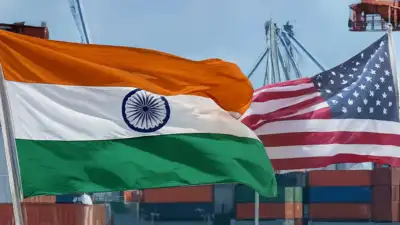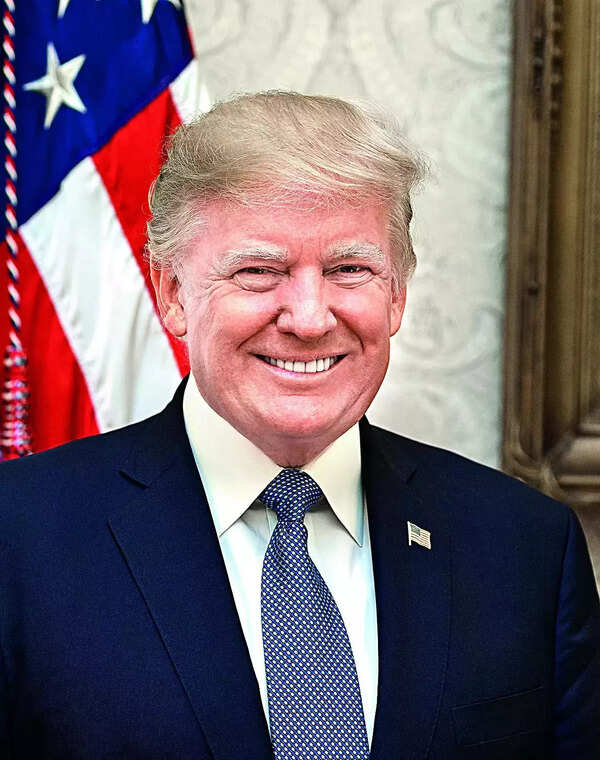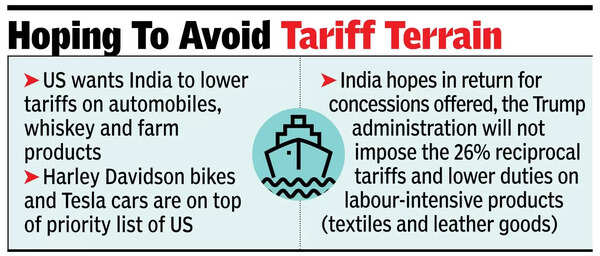
NEW DELHI: Government is open to offering duty-free access to certain automobiles imported from the US, such as bikes with over 1,600cc engine capacity, if it can secure a favourable deal in some areas of interest.Some of the concessions, which are still being discussed internally, may, however, come with quotas. This means the lower or zero duty benefit may be available only for a certain number of units imported under the proposed bilateral trade agreement.
The US has mounted immense pressure on India to lower tariffs on automobiles, whiskey and farm products, arguing that high import duties are holding up American exports. While India slashed the customs duty on products, such as high-end bikes and bourbon in Feb, the Donald Trump administration is not satisfied and is pushing for further cuts. Harley Davidson bikes and Tesla cars are on top of Trump’s priority list, especially with Elon Musk being a key aide of the American President.

Musk has been lobbying with India to lower import duties, something that the government refused to do earlier. However, last year, it came up with a new policy that offered 15% tariffs for a limited period, provided companies using the window set up a manufacturing facility. The detailed guidelines are expected only in a few weeks as inter-ministerial consultations are currently underway. A steep tariff reduction will, however, impact investment plans.
Faced with the threat of reciprocal tariffs, the commerce department, which is leading negotiations for a bilateral trade agreement, is holding consultations with other government departments and ministries. These, in turn, are seeking feedback from industry and other stakeholders. While sectoral negotiations are yet to commence, a team led by India’s chief negotiator, Rajesh Agrawal, is currently in Washington to iron out pending issues and explore the possibility of an “early tranche.”

Originally, Trump and PM Narendra Modi agreed to have a first tranche by autumn (Sept-Oct), covering import duty on goods, non-tariff barriers, and ways to strengthen the supply chain. India is hoping that in return for concessions offered by it, the Trump administration will not impose the 26% reciprocal tariffs, which have been paused for 90 days, while also lowering duties for labour-intensive products, such as textiles and leather goods shipped from the country.











